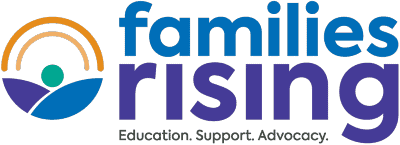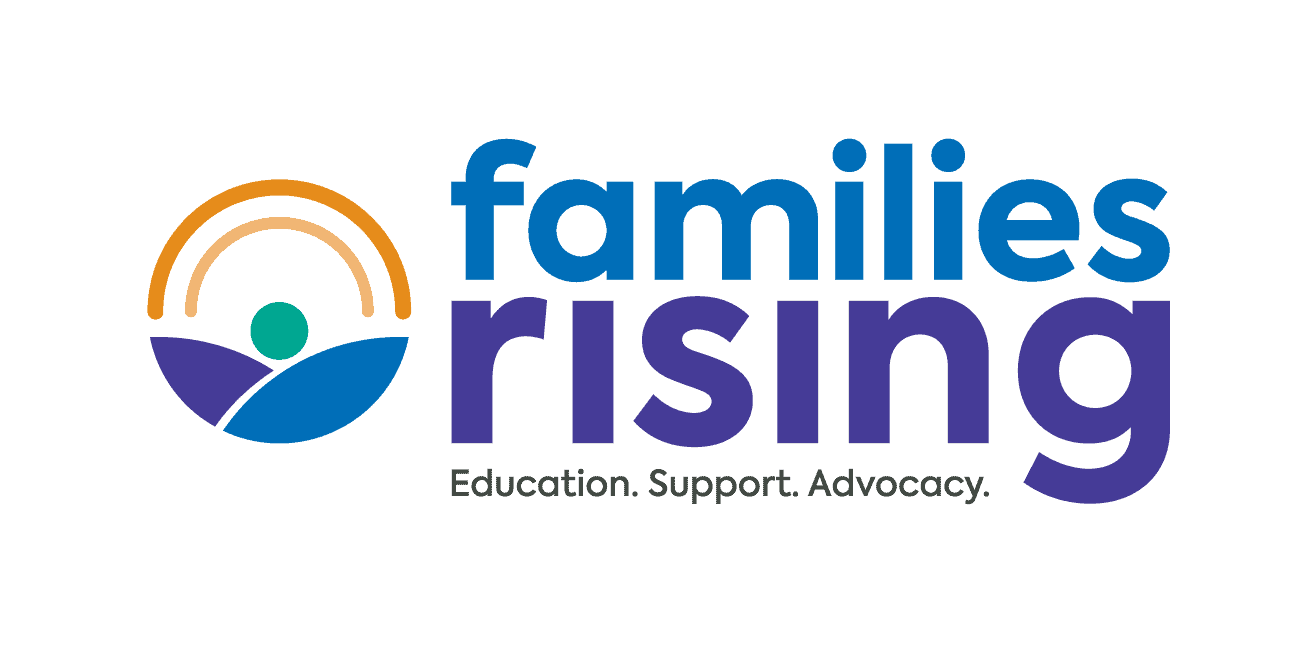Philosophy
Families Rising believes that every child and youth—regardless of age, special needs, or length of time in foster care—has a right to a permanent, legal connection to a caring family. A permanent legal family should be the ultimate goal for every child and youth, as outlined in Families Rising’s position statements on Permanency for Older Children and Youth; Permanency Planning/Continuity of Relationships; and Kinship Care.
Unfortunately, however, many youth leave foster care without a family when they reach their jurisdiction’s age of majority (typically 18 but sometimes as old as 21). Known as emancipation or aging out, such exits often leave youth at tremendous risk for poor outcomes such as homelessness, unemployment, teen pregnancy or parenthood, incarceration, and more. To reduce the risks of poor outcomes, the child welfare system has an obligation to both thoroughly prepare youth for emancipation and support them after they exit foster care. Youth who emancipate from care must be provided a safety net for years after they exit care. Because the government took responsibility for these youth when it brought them into care, it must continue to be responsible until the youth are living self-sufficiently in the community. Providing such ongoing support will help improve youth’s chances of being successful members of the community and will reduce societal costs in the long-term as youth avoid expensive negative outcomes.
Youth who emancipate from care, and those at risk of doing so, must be full partners in any decisions made about their lives. They must be actively involved in their own transition planning and be partners in preparing for life after foster care.
Policy Recommendations
The U.S. Fostering Connections to Success and Increasing Adoptions Act of 2008 increased opportunities for states to support foster youth until age 21 and required states to improve transition planning for youth exiting care. Much more remains to be done in both the U.S. and Canada. The following policy recommendations should be implemented to ensure improved outcomes for youth who emancipate from foster care:
- Extend foster care to age 21, enabling all youth to either remain in care until they turn 21 or, if they emancipated early, to return to foster care until they turn 21
- Provide additional funding, in the U.S., for the Foster Care Independence Act of 1999 (Chafee program) so that youth who exit foster care have necessary access to housing stipends, mental health services, mentoring, independent living services, and education/training vouchers; extend availability of these services through age 25
- Ensure that each Canadian province and territory provides youth who exit foster care, through age 25, with necessary access to housing stipends, mental health services, mentoring, independent living services, and education/training vouchers
- Provide comprehensive physical and mental health coverage (through Medicaid or a similar program) through age 25 to all youth who emancipate from care, regardless of whether the youth meets a particular educational standard (such as school enrollment) or immigration status
- Create and fully fund comprehensive support services that are available for all youth through age 25 who have emancipated from care, with such services to include housing support and financial assistance, educational support (including both high school completion, post-secondary education, and vocational education), access to physical and mental health care, and employment training and support. Ensure that such services are available immediately upon emancipation but also at any time the youth needs support before the age of 26.
- Implement and fund tuition waiver programs so that emancipated youth in every state, province, and territory can attend their local public colleges and universities with no tuition fees; ensure funding for grant programs to help offset the costs of room and board, books, and other expenses
- Expand or implement federal laws that allow undocumented foster youth to live legally in the country for five years and then apply for citizenship; eliminate current U.S. restrictions based on the youth’s HIV or marital status, among other things, and ensure that youth will not be deported for filing a petition for this status
Practice Recommendations
Preparing Youth to Emancipate
Every youth in foster care 15 and older who remains in care longer than 90 days should have a concurrent plan—an ongoing process and plan that both seek permanency (reunification, kinship placement, adoption, or guardianship) for the youth while also preparing the youth for life after foster care. (For more on permanency, see Families Rising’s position statement on Permanency for Older Children and Youth.)
Preparation for life after emancipation must be comprehensive, ongoing, and tailored to the youth’s specific strengths and needs. The youth’s caseworker, or an independent living specialist, must work in collaboration with the youth and his or her foster parents, relatives, current care providers, and other supportive adults to develop an individual transition plan. The plan must take into account the youth’s long-term goals and current skills, abilities, and challenges, and identify steps necessary to achieve those goals. The dependency court and child welfare supervisors should review the transition plan and ensure that progress is made over time.
Child welfare professionals should ensure that foster parents or other primary caregivers receive ongoing training on how to help teens develop life skills, including experiential learning related to budgeting, cooking, cleaning, shopping, and more.
Key to the preparation is the identification of at least one, preferably more, responsible adult who will serve as a committed resource or mentor to the youth after emancipation. The caseworker must partner with the youth to identify possible resources, explore those options until at least one committed adult has been identified, and build a relationship between the youth and the adult(s).
Before the youth emancipates, the youth’s caseworker, with the support of independent living specialists, must ensure the youth has:
- completed the Ansell-Casey Life Skills Assessment (or a similar tool) to assess his or her readiness for independence
- received comprehensive, in-depth training, tailored to needs identified in the above assessment, on general life skills such as budgeting, cooking, shopping, cleaning, taking public transportation, financial literacy, self-advocacy, self-esteem, communication, obtaining financial aid, applying to school or work, and problem solving
- support to receive a high school diploma, preferably, or GED, if the youth is cognitively able to achieve this goal
- all necessary documentation (school records/transcripts, health records, birth certificate, U.S. Social Security or Canadian Social Insurance number/card, and driver’s license or other legal identification)
- a comprehensive physical and mental health assessment and any necessary services to address identified needs
- if applicable, a formal classification as disabled or developmentally delayed to ensure access to services for adults with these classifications
- services to address substance abuse or other addictions
- information about maintaining his or her health, including family planning and sex education, personal safety, nutrition, and healthy choices
- internships, mentoring, job shadowing, job search assistance, work readiness training, and other employment support services
- active engagement with community and school activities
- knowledge of and connections with government and community resources and organizations that can provide supportive services
- support for building or maintaining safe relationships with birth family members
Providing Support after Emancipation
During and after the emancipation process, child welfare professionals must ensure each youth has:
- at least one committed adult to provide mentoring and support
- a safe, healthy place to live and a means to pay for that housing for at least one year after emancipation, including a back up plan if the first housing option falls through
- a plan for continuing his or her education or obtaining a job, and support systems in place to ensure progress on educational or vocational goals
- applied for all available, relevant, and necessary public support, including Medicaid, Social Security Insurance, services for adults with mental health issues, physical or developmental disabilities, food stamps, job training, education, housing support/vouchers, etc.
- access to cash assistance if needed to pay for housing or living costs
- access to ongoing assistance with obtaining housing, educational, employment, and emotional support until age 25
To ensure the best use of resources and the most effective support of youth emancipating from care, states, provinces, tribes, bands, and the federal governments should fund pilot programs to rigorously evaluate which types of supportive services, provided for how long, are most effective at serving youth who emancipate from foster care. Final evaluations should be disseminated widely with information to help other sites replicate the most successful models.


